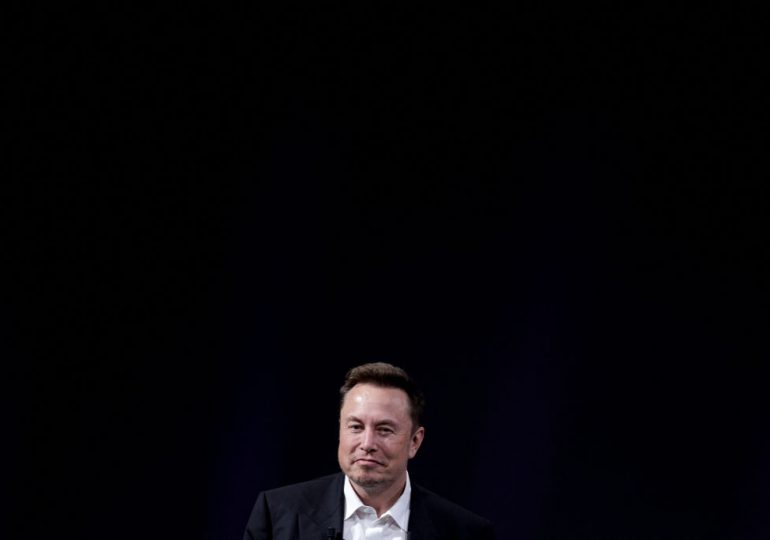After pouring at least $260 million to help get Donald Trump re-elected U.S. President, and being handsomely rewarded with a job to co-lead a new government department, the world’s richest man is now training his eyes on Europe.
In the U.K., Musk has launched a barrage of attacks at the center-left British Prime Minister Keir Starmer, calling for him to be thrown in jail for allegedly covering up “grooming gangs.” In Germany, he has called the Social Democratic Chancellor Olaf Scholz “a fool” and the party’s president an “anti-democratic tyrant.” He is throwing his lot in with the Alternative for Germany (AfD)—a party that is so extreme that it has received rebuke from others on the European far-right—ahead of a crucial election on Feb. 23.
[time-brightcove not-tgx=”true”]
The South African-born Musk will on Thursday feature a lengthy live chat on X with AfD leader Alice Weidel. It comes not long after he penned an airy op-ed in the German media Die Welt am Samstag on Dec. 28 that reaffirmed his affection for a party that espouses rabble-rousing populism, thinly veiled anti-Semitism, and pro-Russian leanings.
Mainstream German politicians charge that Musk’s overtures constitute an “attack on German democracy.” Musk’s only argument so far contesting the extreme-right classification of AfD branches by German intelligence services is that Weidel is a lesbian with a Sri Lankan partner.
Read More: How Elon Musk Became a Kingmaker
Musk misunderstands the AfD. The billionaire Tesla founder has praised AfD’s economic agenda but while it touts a neoliberal line, it does so softly and it is not the source of its votes. The eastern Germans, in particular, blame free-market policies for their post-unification travails. The AfD doesn’t win 30% of the vote in eastern Germany because of its economic prescriptions, which are not written in bold at the top of their program, but rather in spite of them.
Had Musk done his homework on German politics, he would have put his name behind either the conservative Christian Democratic Union (CDU) or the liberal Free Democrats. These parties call for reducing taxes for corporations and well-off individuals, sidelining labor unions, shrinking welfare benefits, and easing environmental standards when they obstruct market play. Musk is instead backing a horse that four-fifths of the German population rejects.
His choice is already starting to backfire. German NGOs and some companies have left X and there are calls for boycotting Tesla and X. Tesla’s gigafactory near Berlin—a product of the regional Social Democrats’ engagement, not the AfD—regularly bumps up against German regulators, and will now be ever more unlikely to get calls in its favor. Musk has antagonized exactly the people he’ll need in the near future. Friedrich Merz, the CDU leader who will most probably be the next German Chancellor, has called Musk’s Die Welt op-ed “overbearing and presumptuous.”
Part of the reason Musk’s approach in Europe is destined to fail is that the continent’s post-war institutions were explicitly designed to weather rogue assaults and multifarious crises. The very purpose of Europe’s premier institution, the E.U., is to deepen and expand democracy—and therefore to defend it, too.
When E.U. member states deviate too profoundly, there are 20-something other pillars there to stabilize it. There’s no better example than Hungary, which held the rotating presidency of the Council of the E.U. for the last six months—and accomplished nothing.
As unhappy as many Europeans are about the economy and other issues, the vast majority respect democracy’s prerogatives and condemn its detractors. Europeans overwhelmingly embrace the E.U., environmental protections, and the postwar social-market economy. It won’t easily be replaced with a business model (Musk’s vision) or a racially-based authoritarian state (the AfD’s).
Musk’s embrace of the AfD has already triggered a vigorous debate in Germany about oligarchs. “Anyone who thinks that such a poorly argued opinion will influence [German] democracy underestimates the strength of [Germany’s] open society,” argued the magazine Stern.
Most Europeans want to prevent an autocrat like Trump from coming to power, even if Hungary’s Orbán has demonstrated that it is possible. All of Germany’s democratic parties have ruled out cooperating with the AfD by maintaining a strict “firewall” between them. In the U.K., the Labour government is considering a legal limit to the amount a foreign national can donate via their U.K.-based companies. And in Romania, courts cancelled a presidential election amid allegations that it had been unduly influenced by Russian money and disinformation.
Musk’s ultimate aim is to muddle the debate to the point that democracy buckles and the state is unable to control the private sector. The best possible outcome is a public unmasking of his motives.
That would be an uplifting start to a year that could deliver the far right setbacks rather than more victories.
Leave a comment








